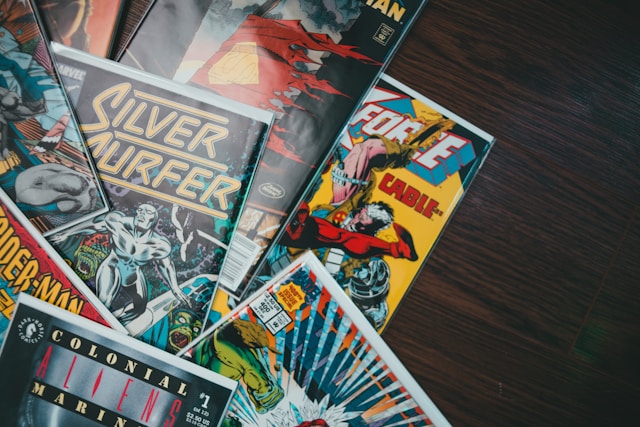The Art of Storytelling: How Comics and Graphic Novels are Redefining Pop Culture
In the vast realm of arts and entertainment, a quiet revolution is taking place. Comics and graphic novels, once dismissed as mere "funny books," are now commanding the attention of readers and critics alike. With their unique blend of visual and narrative storytelling, these mediums are challenging traditional notions of art and literature, and leaving an indelible mark on pop culture. In this article, we will delve into the rich history of comics, explore their current impact, and examine why they have become a cultural force to be reckoned with.

In the vast realm of arts and entertainment, a quiet revolution is taking place. Comics and graphic novels, once dismissed as mere “funny books,” are now commanding the attention of readers and critics alike. With their unique blend of visual and narrative storytelling, these mediums are challenging traditional notions of art and literature, and leaving an indelible mark on pop culture. In this article, we will delve into the rich history of comics, explore their current impact, and examine why they have become a cultural force to be reckoned with.
The Evolution of Comics: From Pulp to Pop Culture Phenomenon
Comics have a long and storied history, dating back to the early 20th century. Originally published in newspaper strips, they quickly gained popularity and expanded into standalone comic books. Over the years, comics have evolved from simple escapist fare to complex, multilayered narratives that tackle a wide range of themes and genres. This transformation has been driven by visionary creators who have pushed the boundaries of the medium, experimenting with new styles, techniques, and storytelling approaches.
The Rise of Graphic Novels: A New Form of Literary Expression
The term “graphic novel” was coined in the 1970s to describe long-form comics that tell a complete, self-contained story. This new format allowed creators to explore more mature themes and complex narratives, leading to a surge in critical acclaim and mainstream acceptance. Graphic novels such as Art Spiegelman’s Maus and Alan Moore and Dave Gibbons’ Watchmen have been hailed as literary masterpieces, earning prestigious awards and cementing their place in the canon of great literature.
The Impact of Comics on Pop Culture: From Superheroes to Social Commentary
Comics have had a profound impact on popular culture, influencing everything from movies and television to fashion and music. The superhero genre, in particular, has become a dominant force in Hollywood, with blockbuster franchises such as Marvel’s Cinematic Universe and DC’s Extended Universe dominating the box office. But comics are not just about capes and tights; they also tackle social issues, explore historical events, and provide a platform for underrepresented voices.
The Future of Comics: Embracing Diversity and Innovation
As comics continue to evolve, they are becoming more diverse and inclusive, reflecting the changing face of society. Creators are increasingly incorporating underrepresented perspectives and experiences into their work, leading to a richer, more nuanced understanding of the world. At the same time, comics are embracing new technologies and platforms, such as digital comics and webcomics, which are expanding the medium’s reach and accessibility.
The Power of Comics: Why They Matter
Comics are more than just entertainment; they are a powerful form of artistic expression and a vital tool for social commentary. By combining words and images, comics can convey complex ideas and emotions in a way that is both accessible and profound. They have the power to inspire, educate, and challenge us, and their influence is only growing. As we look to the future, comics will continue to shape our culture, our imaginations, and our understanding of the world.




